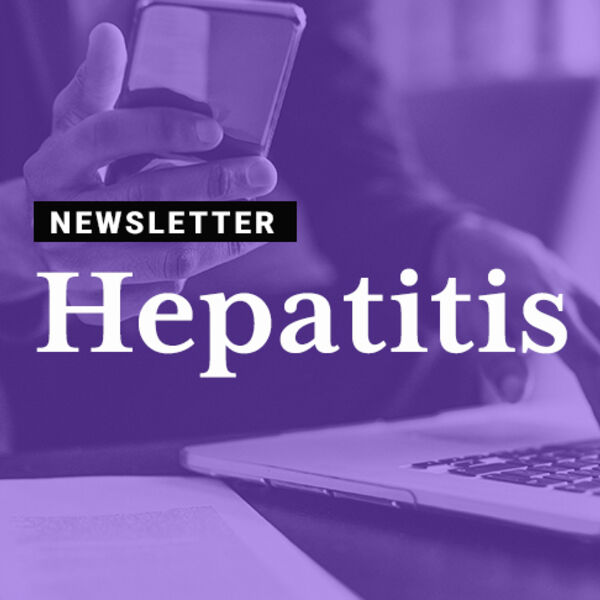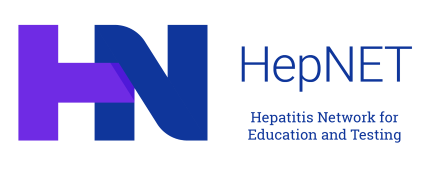
Hepatitis Happenings and Updates
NASTAD Updates
Farewell, Jasmine!
After five fulfilling years, Jasmine will wrap up her time at NASTAD at the end of the month.
“After working with such amazing colleagues and fierce hepatitis advocates, (yes YOU!), it’s definitely bittersweet. Throughout the years, my personal and professional life has grown in unimaginable ways, and I am exuding deep gratitude to everyone who contributed to it. Onward and upward, until next time!”
NASTAD Membership Directory Update
We are updating our membership directory to include both viral hepatitis prevention and surveillance points of contact. Please provide the contact information for your jurisdiction here, and review the current directory here. Thank you!
Reporting Requirements for Negative HIV and Hepatitis C Test Results
NASTAD’s Policy and Legislative Affairs Team recently complete research on state reporting requirements for negative HIV and hepatitis C test results and have compiled the results on an interactive map found here.
Upcoming NASTAD-led Work Group Calls
April and May 2024 Workgroup Calls (Additional information about the workgroups can be found after the break)
- Perinatal Surveillance and Case Management Workgroup
- April 11, 2024 at 3 pm ET | Registration
- Hepatitis C Linkage to Care Workgroup
- May 16, 2024 at 3 pm ET | Registration
- Outbreak Detection Planning Workgroup
- May 28, 2024 at 3:30 PM ET | Registration
Hepatitis Workgroup Calls
Bimonthly call to discuss recent hepatitis updates. Each meeting includes updates on hepatitis advocacy and policy, and drug user health. Participants are encouraged to send in Hot Topics for discussion to hepatitis@nastad.org prior to the meeting. For meeting link, please email Zakiya Grubbs (zgrubbs@nastad.org) or Isabel Lechuga (rlechuga@nastad.org).
-
Schedule: Bimonthly calls every first Tuesday from 3:30 - 4:30 PM ET
-
Upcoming dates: June 4, August 6, October 1, 2024
-
Intended Audience: Closed to health department prevention and surveillance staff.
Hepatitis C Linkage to Care Workgroup
This workgroup, led by Amelia Salmanson, Utah Viral Hepatitis Coordinator and HepTAC consultant, is a space to share best practices and learn from other jurisdictions about disease intervention specialists (DIS), linkage to care, and patient navigation.
-
Schedule: Quarterly calls from 3:00 - 4:00 PM ET
-
Upcoming dates: May 16, August 15 2024
-
Intended Audience: Health department prevention and/or surveillance staff working on HCV linkage to care.
-
Registration: https://nastad.zoom.us/meeting/register/tZwtfuCgpjMpGtIaEJBAq0HeBp0Rsf6I-KF-
Perinatal Surveillance and Case Management Workgroup
For jurisdictions looking to start or have previously established a perinatal hepatitis surveillance and case management program, this space is for sharing challenges and breakthroughs. Discussion topics include identifying cases within existing surveillance, developing a registry, infant follow-up testing and case management, and provider outreach.
-
Schedule: Bimonthly, then quarterly calls from 3:00 - 4:00 PM ET
-
Upcoming dates: April 11, June 20, September 19, 2024
-
Intended Audience: Health department prevention and/or surveillance staff working on perinatal hepatitis B and C surveillance and case management.
-
Registration: https://nastad.zoom.us/meeting/register/tZArd-6tqDgrH9F9M64LUFClne5d2Ldbmiec
Outbreak Detection Planning Work Group
Collaborative space for jurisdictions to discuss developing and implementing an outbreak response plan for Hepatitis A, B, and C. Jurisdictions can share best practices and outbreak response activities, including monitoring surveillance data to identify outbreaks.
-
Schedule: Monthly calls every fourth Tuesday from 3:30 - 4:30 PM ET
-
Upcoming dates: May 28, June 18, 2024 (note the date has changed)
-
Intended audience: Health department prevention and surveillance staff working on developing and implementing an outbreak response plan as a part of PS 21-2103 Component 1 grant activities.
-
Registration: https://nastad.zoom.us/j/84875059553
Newer Hepatitis Staff Calls
These calls are being restructured in 2023 and are open to all new hepatitis health department staff who started their roles in the respective quarter of the call date. Attendees will have the opportunity to meet-and-greet others and familiarize themselves with NASTAD’s Newer Hepatitis Staff Toolkit. Reach out to hepatitis@nastad.org to be added to the invitation.
-
Schedule: Quarterly calls from 2:00 - 3:00 PM ET
-
Upcoming dates: June 24, September 23, 2024
-
Intended Audience: Newer hepatitis program staff (e.g. program coordinators, surveillance staff, etc.)
VLC Recordings/Upcoming Sessions
On April 24, we will host a workshop VLC session, “Conversations: Improving viral hepatitis prevention and surveillance programs” to provide space to debrief and discuss next steps with peers following the National Viral Hepatitis Meeting. Please note this session was originally scheduled for April 17 but has been moved to April 24.
Earlier this month, we held a VLC session on “Viral Hepatitis Elimination Plan Implementation” with presenters Tennysa Mace (WV DHHR) and Andrew Knox (NM DOH), and moderator Lauren Orkis (PA DOH). Recordings can be found here.
We are looking for speakers to share their viral hepatitis expertise during the Virtual Learning Collaborative Year 3. Please indicate on this form which dates and topics you are interested in presenting or moderating. Thank you!
Please visit the VLC microsite for more information and to watch recordings from previous VLC sessions.
Hepatitis Policy Updates
Biden Administration Releases FY2025 Executive Budget Request to Congress
On March 11, the White House released the Administration’s budget request to Congress for fiscal year 2025 (FY2025), a non-binding proposal that typically kicks off spending negotiations on Capitol Hill. The Administration also released the HHS Budget in Brief, which outlines $130.7 billion in discretionary funding for the Department of Health and Human Services (HHS). Notably, the FY2025 budget request includes legislative requests for a new 5-year national hepatitis C virus (HCV) elimination program, as well as a PrEP Delivery Program. In addition, for the first time, the budget request includes $10 million at the Department of Justice for efforts to modernize outdated criminal statues with a discriminatory impact on people living with HIV. It is important to note that this is a budget request and does not have the power of the law. Only Congress has the power to appropriate funds. Click here to read NASTAD’s memo outlining the Administration’s spending and policy priorities for the final year of the term.
Lawmakers Finalize FY2024 Appropriations
On March 23, lawmakers approved the final minibus of spending bills for fiscal year 2024 (FY2024), closing out a protracted spending cycle marked by partisan disagreements and repeat continuing resolutions. The spending package by and large extended fiscal year 2023 (FY2023) totals for the remainder of FY2024 as a result of non-defense discretionary budget caps set by the bipartisan debt ceiling compromise of 2023. All programs under the Centers for Disease Control and Prevention (CDC) National Center for HIV, Hepatitis, STIs, and Tuberculosis Prevention (NCHHSTP) and the Ryan White HIV/AIDS Programs were level-funded. Ending the HIV Epidemic Initiative programs were also flat funded, despite the House proposal to eliminate the programs.
Although increasing funding for health programs remains urgently necessary, level-funding was the best-case scenario in FY2024 due to the tight fiscal spending environment and right-wing calls to slash spending. With FY2024 appropriations completed, lawmakers are expected to promptly take up fiscal year 2025 (FY2025) spending processes.
House Advances Bill to Improve Fiscal Impact Analysis for Preventive Services
On March 19, the House of Representatives passed the Dr. Michael C. Burgess Preventive Health Savings Act (H.R.766), which would extend the timeframe of fiscal impact analyses conducted by the Congressional Budget Office (CBO) for bills that impact preventive health services. Under current law, CBO fiscal impact analyses are capped at a 10-year window, resulting in underestimates of the true projected cost-savings for legislation that improve preventive health service delivery for chronic conditions. Although the bill does not permit any projected cost-savings that accrue after the 10-year window to offset expenses under PAYGO rules, the description and estimate of the savings must be reported in the CBO projections. The inclusion of this data will help lawmakers to consider the true net benefits and downstream costs of innovative service delivery models, like proposals for a national PrEP program and a national hepatitis C virus (HCV) elimination program.
Additional Updates
Hepatitis National Network for Education and Testing (HepNET)
Formed through a partnership between NASTAD, NVHR and NACCHO, the Hepatitis Network for Education and Testing (HepNET) is a collaborative initiative dedicated to advancing racial justice and health equity in viral hepatitis care, with a focus on people who use drugs. Click here to become a member completely free! Members get access to HepNET's resource warehouse, webinars and events, invitations, technical assistance opportunities, and the chance to participate in HepNET's learning communities.
Hot Topics: HepTAC TA Requests
We have received a few TA requests and we are requesting your assistance:
-
Are you using incentives to increase uptake of rapid HCV antibody testing? Please reach out to Colleen Flanigan at colleen.flanigan@health.ny.gov.
-
A diagnostics manufacturer is seeking help with identifying centers or patients where they could acquire specimens for pediatrics at risk for HCV. Please email Adrienne Simmons at Adrienne@nvhr.org if you’re interested in this inquiry.
-
If you have worked with your state drug and alcohol authority on the State Opioid Response grant to implement hepatitis services, please reach out to us to share your experiences
-
We are in the process of developing an adult hepatitis immunization resource and want to know what you all would like to be included. Please fill out the survey here or reach out to us directly.
-
Examples of viral hepatitis outbreak detection and response plans
If you have any information on the above TA requests, please email hepatitis@nastad.org. Thank you!
HepTAC Consultant Spotlight
Did you know that the Hepatitis team works closely with many consultants to support TA requests and resource development? HepTAC Consultants provide valuable expertise in hepatitis prevention and surveillance. Each month we will spotlight a different consultant so that you can get to know them better. Information on all consultants can be found here and if you would like to request TA, please email hepatitis@nastad.org.
Danica Kuncio, HepTAC Consultant
Danica Kuncio manages viral hepatitis activities in Philadelphia, PA and has worked in the hepatitis B and hepatitis C public health surveillance and prevention for over a decade. She earned her Master of Public Health in the Epidemiology of Microbial Diseases from Yale’s School of Public Health and has been with HepTAC since 2019. Danica lives just outside of Philadelphia with her family, and enjoys running, reading, cooking, and being outdoors with her kids.
Note: Our team aims to send out a monthly newsletter to streamline hepatitis communications. If you know someone who would benefit from signing up or if you would like to be unsubscribed from the monthly newsletter, please email us at hepatitis@nastad.org We apologize if you emailed us and haven’t heard back, please email us again!
Partner Updates
2024 Viral Hepatitis National Progress Report
On April 3, 2024 CDC released the 2022 Viral Hepatitis Surveillance Report and the 2024 Viral Hepatitis National Progress Report (which tracks progress towards the Viral Hepatitis National Strategic Plan: A Roadmap to Elimination 2021-2025). Both reports show progress, some stagnation and opportunities for improvement to reach national viral hepatitis elimination goals.
Key takeaways from the 2022 Viral Hepatitis Surveillance report:
-
Hepatitis A: The rate of hepatitis A has decreased 59% between 2021 to 2022, continuing a downward trend since 2020.
-
Hepatitis B: The rate of acute hepatitis B remained stable from 2021 to 2022, following years of increases, except among non-Hispanic Black persons where the rate increased 11.1% during this time.
-
Hepatitis C: The rate of acute hepatitis C decreased 6.3% from 2021 to 2022, following years of increases between 20015 and 2021, except among non-Hispanic American Indian/Alaska Native persons, where the rate increased 7.4% between 2021 and 2022.
Resources
Michigan - Hepatitis A Outbreak Case Investigation SOP (NPIN)
Upcoming Webinars/Meetings
Gender Diverse Approaches to Community Health: A Webinar Series
April 11, May 14 and June 20, 2024 at 1:00 PM ET | Registration
Join the National Association of County and City Health Officials (NACCHO) as they host a discussion on the importance of local health departments (LHDs) partnering with Trans and Gender Non-Conforming (TGNC) led organizations to improve community health outcomes. Our panel will feature both representation from the LHDs as well as community based organizations (CBOs). Please register to add your voice to the conversation as we explore strategies to increase and strengthen collaborations with local TGNC communities.
New Medicaid Opportunities to Combat Hepatitis C in Correctional Facilities
Apr 22, 2024 at 2:30 PM ET | Registration
Achieving equity in hepatitis elimination: Strategies to bring HBV and HCV screening to persons experiencing homelessness
Apr 23, 2024 at 11:00 AM ET | Registration
Archived Webinars
HepNET - Addressing Xylazine in Viral Hepatitis Care Settings - YouTube
Dziko Singleton and Dr. Andrew Klein discussed the increasing presence of xylazine in the drug supply and its impact on people who use drugs. Several attendees' questions allowed everyone to participate in an engaging conversation. Dziko and Dr. Klein discussed how they are addressing xylazine’s health risks for people who use drugs in their respective care settings and shared harm reduction strategies and culturally responsive approaches to care that follow the lead of people directly impacted by xylazine use.
Hepatitis C: State of Medicaid Access – March 2024 Snapshot
Recurring Meetings
CSTE Viral Hepatitis Subcommittee Meetings | First Thursday, every other month at 3 PM ET
The Viral Hepatitis Subcommittee holds regular conference calls and webinars to discuss current issues and overarching topics related to viral hepatitis surveillance, such as best practices and lessons learned across jurisdictions, policy around viral hepatitis surveillance, and analyzing viral hepatitis data. For more information, click here.
Conferences/Events (National & Local)
National Latinx Conference on HIV, HCV and SUD
May 2-4, 2024 | El Paso, TX | Register here
NASTAD 2024 Annual Meeting
May 19-22, 2024 | Omni Shoreham Hotel, Washington, DC
NASTAD’s annual membership meeting will take place this year from May 19 to 22, 2024. Registration is now open and the fee is $850. During this year’s meeting, we will be conducting Hill Visits for interested NASTAD members. Registration for Hill visits can be found with the main meeting registration, and participants can join an orientation webinar with the Policy and Legislative Affairs team on May 1, 2024 at 3 pm ET, registration here. For travel and logistics questions, please contact Travel@nastad.org.
CSTE Annual Conference
June 9-13, 2024 | Pittsburgh, PA | Registration can be found here
NASTAD National HIV and Hepatitis Technical Assistance Meeting
Save the Date: October 16-18, 2024 | Omni Shoreham Hotel, Washington, DC
2024 Northeast Regional Epidemiology Conference
November 7-8, 2024 | Atlantic City, NJ
Northeast Regional Epidemiology Conference (NEEPI), which is a regional public health conference focusing on epidemiology initiatives, responses, and partnerships. The nine participating states are Connecticut, Maine, Massachusetts, New Hampshire, New Jersey, New York, Pennsylvania, Rhode Island, and Vermont. There will be viral hepatitis track and the request for abstracts for oral and poster presentations will be opening in the coming months.
Jobs, Fellowships, and Funding Opportunities
Hep B United Mini-Grants Program 2024 Request for Funding Proposal
The Mini-Grants program will support up to seven awards for Hepatitis B United (HBU) coalition partners to provide hepatitis B education, prevention, testing and linkage to care services. Applications are open until May 31, 2024. More information can be found here, and the application should be submitted here.
CDA Foundation Relink Grant Request for Proposals
The second round of request for proposals for the CDAF Relink Grant is currently open until April 14, 2024 at 12:59 PM MT. The Relink Grant supports linking people diagnosed with HBV/HCV into care. More information can be found here.
Viral Hepatitis Prevention Coordinator | Texas Department of Health Services | Austin, TX
Publications
Dried Blood Spot: A Sample Collection Method for HCV that Can Meet People Where They Are
Scaling up Hepatitis A and B vaccination for gay and bisexual men and transgender people
Integrated Hepatitis C–Opioid Use Disorder Care Through Facilitated Telemedicine: A Randomized Trial
Cost-Effectiveness of Strategies for Treatment Timing for Perinatally Acquired Hepatitis C Virus






